CPS Unit Number 020-01
Camp: 20
Unit ID: 1
Title: Sideling Hill
Operating agency: MCC
Opened: 10 1941
Closed: 10 1944
Workers
Total number of workers who worked in this camp: 446
-
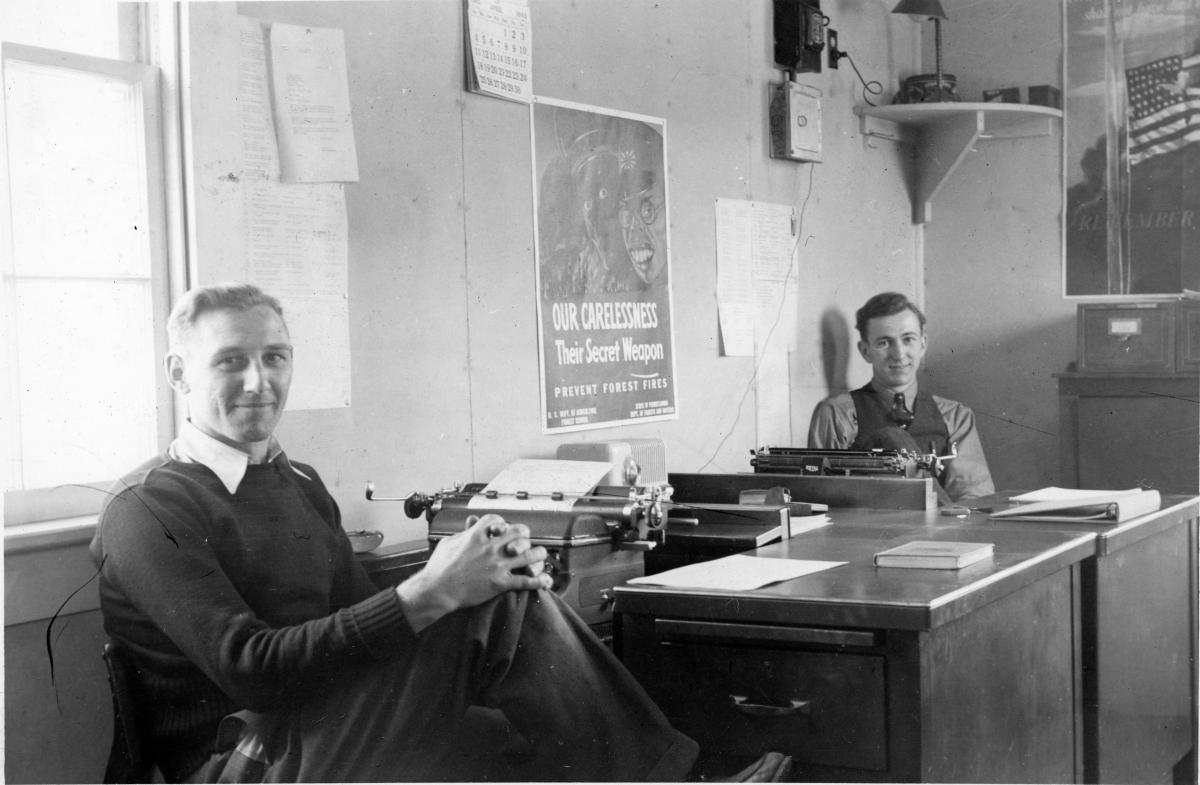 CPS Camp No. 20, Sideling Hill, Wells Tannery, PennsylvaniaCamp secretaries (unidentified) working in technical officeDigital Image at Mennonite Church USA Archives, North Newton, Kansasca. 1942
CPS Camp No. 20, Sideling Hill, Wells Tannery, PennsylvaniaCamp secretaries (unidentified) working in technical officeDigital Image at Mennonite Church USA Archives, North Newton, Kansasca. 1942 -
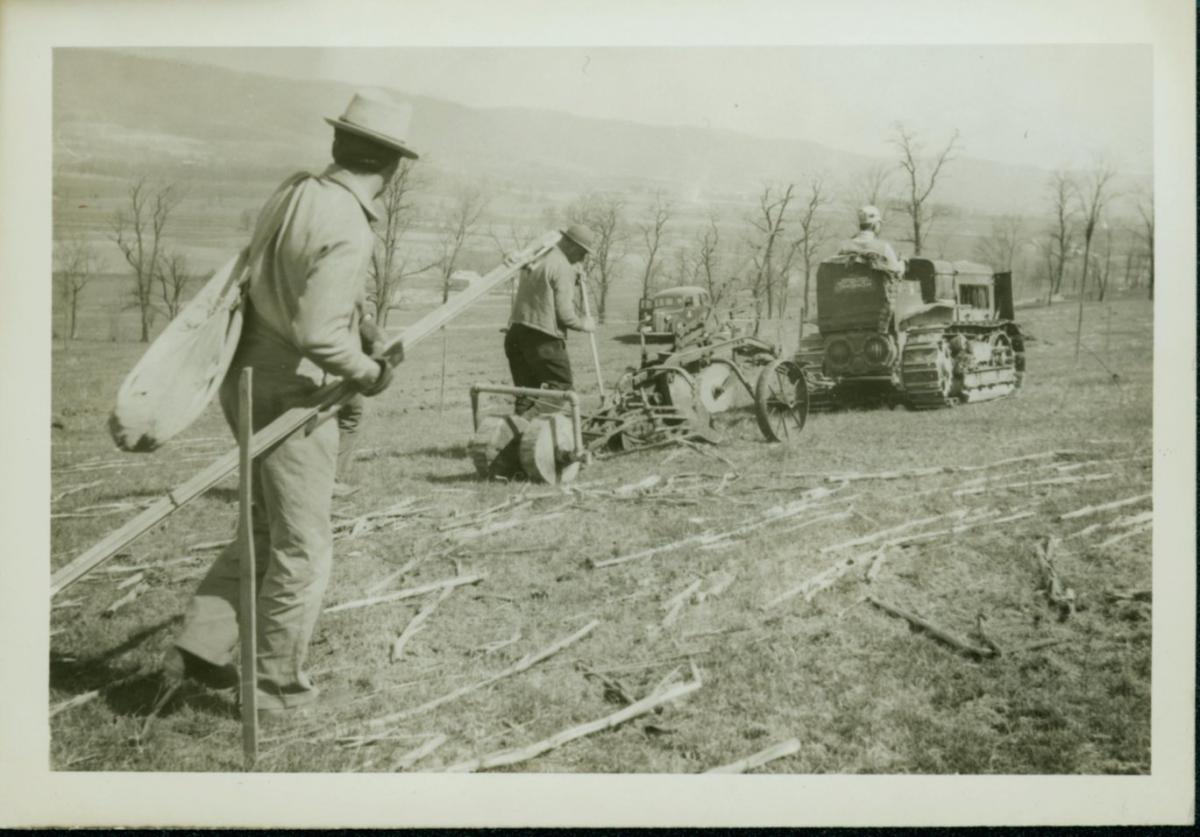 CPS Camp No. 20, Sideling Hill, Wells Tannery, Pennsylvania.Field work.Digital image, Photo #1357. Box 1, Folder 13. MCC Photographs, Civilian Public Service, 1941-1947. IX-13-2.2. Mennonite Central Committee Photo Archive
CPS Camp No. 20, Sideling Hill, Wells Tannery, Pennsylvania.Field work.Digital image, Photo #1357. Box 1, Folder 13. MCC Photographs, Civilian Public Service, 1941-1947. IX-13-2.2. Mennonite Central Committee Photo Archive -
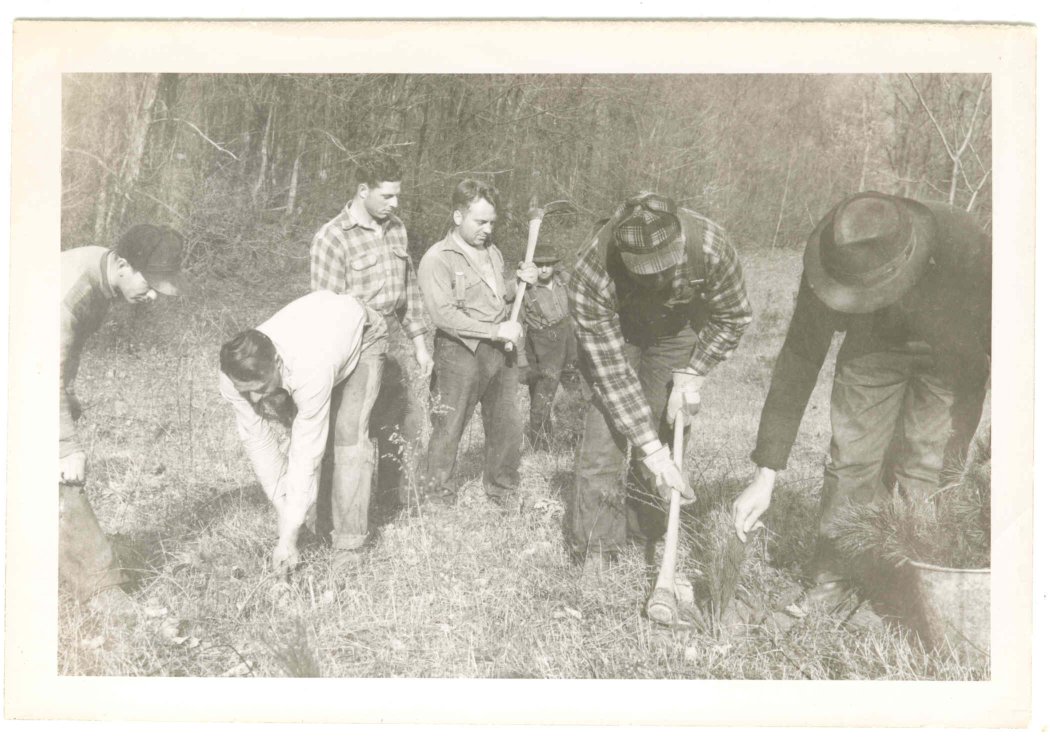 CPS Camp No. 20, Sideling Hill, Wells Tannery, Pennsylvania.Civilian Public Service men planting trees.Digital image, Photo #9. Box 1, Folder 13 MCC Photographs, Civilian Public Service, 1941-1947. IX-13-2-2.2. Mennonite Central Committee Photo Archive
CPS Camp No. 20, Sideling Hill, Wells Tannery, Pennsylvania.Civilian Public Service men planting trees.Digital image, Photo #9. Box 1, Folder 13 MCC Photographs, Civilian Public Service, 1941-1947. IX-13-2-2.2. Mennonite Central Committee Photo Archive -
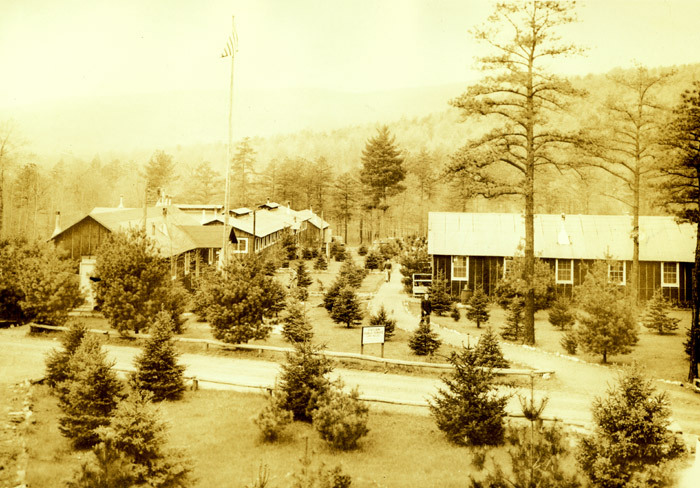 CPS Camp No. 20Civilian Public Service camp #20, Wells Tannery, PennsylvaniaDigital image at Mennonite Church USA Archives, North Newton, Kansasca. 1942
CPS Camp No. 20Civilian Public Service camp #20, Wells Tannery, PennsylvaniaDigital image at Mennonite Church USA Archives, North Newton, Kansasca. 1942
-
 ca. 1942
ca. 1942 -
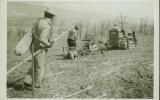
-
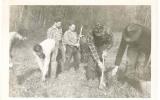
-
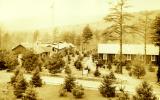 ca. 1942
ca. 1942
CPS Camp No. 20, a Soil Conservation Service base camp, located in Wells Tannery, Pennsylvania and operated by the Mennonite Central Committee, opened in October, 1941 and closed in October 1944. The men worked in soil conservation, contouring farms to prevent soil erosion.
The camp, located in the Cowans Gap Civilian Conservation Corps Camp S-54-Pa, was “about 1,000 feet northwest of the place where the Pennsylvania Turnpike entered the tunnel at the west side of Sideling Hill”.
Directors: Sanford Shetler, Ralph Hernley
Dietician: Winifred Nelson Beechy, Naomi Shank
Matron: Alta Schrock, Mrs. Merle Schwartz
Matron-
Dietician: Elizabeth Sieber Hernley
Nurse-Matron: Bessie Moyer
Men in the Mennonite camps tended to report Mennonite denominational affiliations when entering CPS. Some camps included more diversity in religious affiliation and Atlee Beechy, educational director described planning and administering educational and recreational activities as “an interesting challenge in view of the diverse makeup of the group”. (“Detour . . . Main Highway”: Our CPS Stories p. 2)
The majority of men also declared their occupation when entering CPS as farming or other agricultural work. On average, men in Mennonite camps had completed 10.45 years of education. (Sibley and Jacob pp. 171-172)
The men performed contour farming. In addition, they worked in landscaping and erosion control on the Turnpike itself.
Since the CPSers needed much technical training, the Soil Conservation Service superintendant worked with the camp director to appoint an assignee who could organize a project training program for the technical skills needed to operate effectively. That assignee then became a part of the project overhead. This program functioned well at Sideling Hill with a full-time project training assistant. As a result, the camp developed a twelve-day orientation program including a camp manual sent in advance to men assigned to a camp. The orientation program of tours, conferences, and project training about all areas of camp life assisted men in their adjustment to the life and work of a camp and became a model for other MCC camps in 1944. (Gingerich pp. 322)
Men participated in an educational program consisting of films, slides, bulletins and speakers to increase appreciation for conservation work.
The Mennonites emphasized four goals in educational programming: instruction in Mennonite heritage and mission, clarification of Christians’ relationship to state and community, deepening spiritual experience, and “promoting personal growth by teaching skills with occupational benefit for the men”. (Keim p. 87) These goals were translated into a three month study of Mennonite heritage, and all were strongly urged to participate. The base camps benefitted from an educational director who worked with an educational secretary in MCC headquarters.
The men used a camp library equipped with a large and assorted collection of books, magazines, and papers. MCC provided $.75 per man per month to be used for educational purposes, including purchases for the library.
Winifred Nelson Beechy left her job as a lab technician at the Metalurgy Department at Battelle Memorial Institute to become dietician at the camp when her husband Atlee Beechy accepted the position as educational director.
The job of feeding 150 men three meals a day, seven days a week was a challenge. Of course, meals were not like mother put on the table at home and campers were not always happy or complimentary. However, judgments pretty well evened out pro and con. Looking back it is hard to believe that we could feed campers pretty well on 52 cents per day and in some places, 39 cents per day.
Fortunately, I had good precedent and an able, well training kitchen crew. Elizabeth Sieber Hernley had preceded me and she had experience in large scale cookery. Most of the kitchen staff was from the Lancaster and Virginia areas and they offered a few observations about the dietician—my hair was too short and I wore a wedding band—but perhaps that was not all bad. We had conversations about these “differences” but basically they were a good crew. (“Detour . . .Main Highway”: Our CPS Stories pp. 84-85)
Titus M. Books, ordained in the Brethren in Christ Church, performed full-time pastoral work at the Sideling Hill, Hagerstown, Luray and Grottoes camps beginning July 1, 1943.
The men published The Turnpike Echo from March 2, 1942 to August 1943. The men had proposed a regular monthly farm magazine. Later, several men in unit 2 of Camp 106 in North Platte, Nebraska, also a soil conservation camp, became leaders in launching The Mennonite Community Magazine.
According to Keim, someone visiting the Sideling Hill camp reported that “he never saw such a godforsaken place in his life”. (p. 46)
For more information on the work and life in Mennonite soil conservation camps see Melvin Gingerich, Service for Peace: A History of Mennonite Civilian Public Service. Akron, PA: Mennonite Central Committee printed by Herald Press, Scottdale, PA 1949, pp. 108-124.
For general information on CPS camps see Albert N. Keim, The CPS Story: An Illustrated History of Civilian Public Service. Intercourse, PA: Good Books 1990.
For personal stories of CPS men, see Peace Committee and Seniors for Peace Coordinating Committee of the College Mennonite Church of Goshen, Indiana, “Detour . . . Main Highway”: Our CPS Stories. Nappanee, IN: Evangel Press, 1995, 2000.
See also Mulford Q. Sibley and Philip E. Jacob, Conscription of Conscience: The American State and the Conscientious Objector, 1940-1947. Ithaca, NY: Cornell University Press, 1952.
For a hiking tour of the area in which CPS Camp #20 was located, you may contact the Buchanan State Forest office near McConnellsburg, PA at 717-485-3148. The tour of the camp is usually part of a 2 mile hike which uses the uncompleted South Penn Rail Road bed from 1884, an abandoned section of the PA Turnpike and Sideling Hill Tunnel.